Relevant Overviews
- Communication Strategy
- Content Strategy
- Online Strategy
- Online Community Management
- Social Media Strategy
- Content Creation & Marketing
- Online Architecture
- Digital Transformation
- Thinking tools
- Zettelkasten
- Fediverse
- Innovation Strategy
- Surveillance Capitalism, Social media and Polarisation (Overview)
- Disinformation in the US 2020 elections
- Communications Tactics
- Psychology
- Productivity
- Social Web
- Media
- Politics
- Communications Strategy
- Business
Overview: Surveillance Capitalism, Social media and Polarisation (Overview)
This Overview was my first effort at a Zettelkasten Index to help me prepare for an interview in Trond Undheim's Futurized podcast, as explained here.
Created 5 July 2020.
Key tags: surveillance, polarization.
---
Surveillance capitalism & state
So pervasive, difficult to see from the inside. Term coined by Shoshana Zuboff: latest form of capitalism, familiar in some ways, unique in others. From total control over production (industrial capitalism) to: total control over every aspect of everyday life, including what you think:
the totality of information about our every thought, word and deed... traded for profit in new markets based on predicting our every need – or producing it.
Profoundly undemocratic and dehumanising. Recast this from privacy issue (we willingly traded for nice things) to realise we're giving up
“decision rights”... fundamentally usurped by predictive, data-driven systems...
Not inevitable - technology enables this, but we chose not to regulate it, and the tech giants spend billions lobbying to keep it that way.
This is not just about tech giants - big tech & government:
the twin demons relating to attention... unwanted attention paid to us ... versus our own attention being unwittingly diverted ... living in a Panopticon versus the specter of our personal cognitive resources being fragmented ... by too many competing digital factions that exploit intimate knowledge of their users
Governments rolling out systems to "nudge" us. More data = more effective nudging. Where do you draw the line? Who does it? Who checks/enforces?
"government shouldn’t make up social norms... mislead people for a secondary purpose...
Then throw in augmented reality:
mirrorworld will affect us all at a deeply personal level... severe physiological and psychological effects...to synchronize the virtual ... with the real ... while rendering it visible to millions—will require tracking people and things to a degree that can only be called a total surveillance state
Polarised society
Key linked result: increased polarisation of society. Possibly most important problem: if we can't agree on our problems, or show the slightest respect for each other or the democratic elections we hold, we won't solve any of our problems.
"the US will fracture into something new, unrecognizable, and unstable"
How/Why:
- Social media optimises for outrage because outrage creates engagement
- engagement = you volunteering more data about you
- = more money for surveillance capitalists & control for governments
Regulate all you like: they'll find a way around it, based on behaviour to date. Today's efforts (factchecking, moderation) are small bandaids applied to huge wounds, by the creators of those wounds.
Facebook drives misinformation and radicalization, encourages hate speech, and incites violence... my friends at Facebook have remained true believers
The rage-engage cycle is a key part of how malign narratives gain traction on social media
a platform designed for one result (cannot) be fixed to produce another
When our Feeds are optimised for enragement, politics becomes tribal, creating a perfect environment for disinformation:
"when people... have nonoverlapping lenses, the process by which people make sense of events is more important than the event itself"
social media has the potential to bridge these gaps in ideology, but the way these Facebook discussions take place is ultimately too polarizing and makes others, even witnesses, gun-shy
when people feel they have nowhere trustworthy and independent they can rely on is that they will turn inward ... It then becomes easier for malevolent forces to degrade institutions.
In less than a year... weekly church-attending white Protestants convinced that Donald Trump was anointed by God to be president grew from 29.6 percent to 49.5 percent
shortly after the 2016 election, 14 percent of US adults reported sharing a political news story online that they knew at the time was made up
Filter bubbles are still an open question - probably exist, but not equally strong for everyone at all times. Echo chambers created by 'old media' are indisputable, and not new
homogeneous online networks help conspiracy theories persist and grow online.... creates an ecosystem in which the truth value of the information doesn’t matter.
Facebook and Google... may in fact currently contribute to more diverse news diets... Whether they will still do so after the next algorithm update only they know.
polarization is accelerating fastest among those using the internet the least... Trump’s use of Twitter ... setting the agenda for more traditional news outlets, particularly cable news and talk radio.
Death of independent journalism
Above made much worse by another result of these platforms: destruction of independent journalism.
Journalism as we know it a recent phenomenon, financed by bundling journalism with advertising:
the entire egalitarian economy of the post-war 20th century was more historical anomaly than the rule. In 1820 and 1920, we were a deeply unequal society informed by sharply partisan media. Why should 2020 be any different?
Internet, particularly social media, unbundled everything:
- people consume articles in their feed, not entire newspapers (article bundles with a reputation to safeguard)
- increased content supply, with each article looking as professional as the next (credibility signalling broken)
- advertising unbundled onto craigslist and then facebook - newspaper revenue crashed
search engines and social media have blown apart newspapers’ bundles ... an endless stream of items from all over the web ... Peddlers of fake stories have no reputation to maintain and no incentive to stay honest
Some media will thrive with subscriptions, but internet a winner-take-all environment & many may not outlast Trump bump.
- most people cant afford to buy multiple subscriptions, so subscription model will reinforce polarisation.
- most media will disappear without a new business model, particularly local media: good news for local politicians and local crime
Bottom line
In the future we will be less will informed, more polarised, massively manipulated, living in more corrupt and less democratic societies, unable to solve the challenges we face.
Two paths:
Path No. 1: We stay in our silos, passively allowing media moguls and tech platforms to drag us deeper into our corners... algorithms and micro-targeting mechanisms deliver us belief-confirming disinformation and culturally-divisive tropes... language and packaging that we like best... as our political party preferences increasingly overlap... we find ourselves rage-fueled... a war between a socially constructed us that hates the also-socially constructed them... we will be…ungovernable.
Path No. 2: We actively work to disrupt the infrastructure, logic, and economic model ...
---
Relevant resources
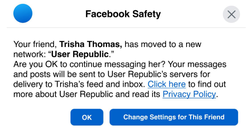
Those who've read Doctorow's books and blogs on the collective action problem stopping people leave the established social media walled gardens may not find anything new, except for the quite brilliant link he makes with "the 1971 film adaptation of Fiddler on the Roof ... the Anatevkans can’t just pack up and leave: they are being …
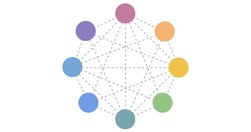
... or Why Small is Beautiful when it comes to our homes online:"a concept – and a vision for the future of our species in the digital and networked age –... The Small Web.... [By comparison:] The Big Web has “users” – a term Silicon Valley has borrowed from drug dealers to describe the people they addict ... farm users in server farms... you…
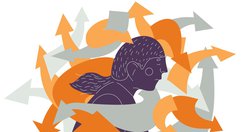
I do like a challenge."We live in the most distracted time in human history. Can we reclaim our attention spans?... A new book by the British journalist Johann Hari, called Stolen Focus, takes a close look at what’s happening — and what’s happened — to our collective attention... we’re all becoming lost in our own lives, which feel more and …
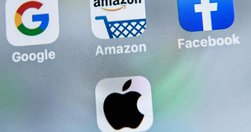
Although this looks like someone looking for problems because of the apparent near-future success of "solutionism", some good points here: we need "an institution that will know what ... regulations to suspend (eg libraries and IPR) ... to fully leverage the potential inherent in digital technologies for the public good."Recent…
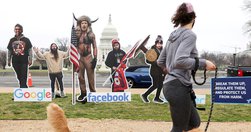
"social and psychological forces that make people prone to sharing and believing misinformation ... are on the rise" - not so much created by bad actors, but exploited by them. Why?“cognitive and memory limitations, directional motivations to defend or support some group identity or existing belief, and messages from other people and pol…

Didn't know: "Prominent conservative donor Rebekah Mercer is among the company’s financial backers"Interesting point: one of the main reasons many are on FB/Twitter is to troll other people - will it be harder to get people to come back to an app where everyone agrees with them?

Fleeting Note (FN): the creation of Fediverse-based alternatives might suddenly become an urgency.
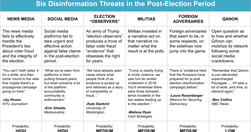
There are two possible reasons why we are not talking as much about foreign interference. Both could be true. Only one is good news.
After pointing out the evolutionary reasons for moral outrage's existence - to shame & punish wrongdoers - this 2017 Nature paper describes a psychological framework (triggering stimuli -> Responses -> Outcomes) for understanding how online social networks "change the expression of moral outrage and its social consequences?&quo;…

Privacy Zuckering... when “you are tricked into publicly sharing more information about yourself than you really intended to... Facebook... paid a $5 billion fine for making “deceptive claims about consumers’ ability to control the privacy of their personal data.” ... “dark patterns,” ... particularly insidious “when you’re deciding what privac…

The president’s reelection campaign ... multimillion-dollar ad blitz ... shaping Americans’ understanding of ... impeachment ... micro-targeted ads ... portraying Trump as a heroic reformer ... while Democrats plotted a coup... An alternate information ecosystem was taking shape ... I wanted to see it from the inside...I was surprised by the effec…
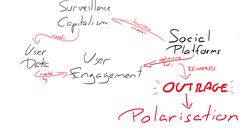
For the 6th episode of his Futurized podcast, Trond Undheim asked me why surveillance capitalism inevitably leads to polarised, undemocratic and dysfunctional societies, and what we must do about it...If we don’t change course, in the future we will be less will informed, more polarised, massively manipulated, living in more corrupt and less democ…

Facebook is wary of being drawn further into a political argument ahead ... divisive presidential election ... ... steer clear of fact-checking political advertisements... keen not to antagonise Mr Trump ... claiming that social media platforms are biased against Republican ... purely a business decision ... ubiquitous... it must always align with…
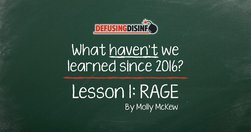
The rage-engage cycle is a key part of how malign narratives gain traction on social media... into traditional media... disinformation content is designed to be polarizing... exploits the business models of social media... pointing out that something is false and dangerous ... giving more oxygen to the fire... [Trump] tests and revises purposefull…
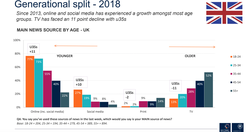
echo chambers and filter bubbles are slightly different... echo chambers could be a result of filtering or ... other processes, but filter bubbles have to be the result of algorithmic filtering...people main source of news roughly equal ... online and television... TV is more likely... people over 45. People under 45 are more likely to get their n…
our analysis shows that social media use is clearly associated with incidental exposure to additional sources of news ... with more politically diverse news diets... The algorithms, of course, continually change... More sources does not necessarily mean more diverse... the majority in most countries and in most groups do not use sources from a…

Fighting people with facts only makes them cling to their beliefs more strongly, further polarising our damaged societies. Different tactics are needed, and they start closer to home than you think.

On fully eight of the nine measures, “polarization increases more for the old than the young.” If Facebook is the problem, then how come the problem is worst among those who don’t use Facebook? ... polarization is accelerating fastest among those using the internet the least... social media is important. It’s just not the whole picture... two mai…
Relevant Overviews
- Communication Strategy
- Content Strategy
- Online Strategy
- Online Community Management
- Social Media Strategy
- Content Creation & Marketing
- Online Architecture
- Digital Transformation
- Thinking tools
- Zettelkasten
- Fediverse
- Innovation Strategy
- Surveillance Capitalism, Social media and Polarisation (Overview)
- Disinformation in the US 2020 elections
- Communications Tactics
- Psychology
- Productivity
- Social Web
- Media
- Politics
- Communications Strategy
- Business